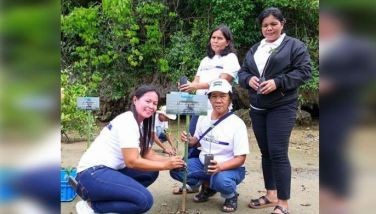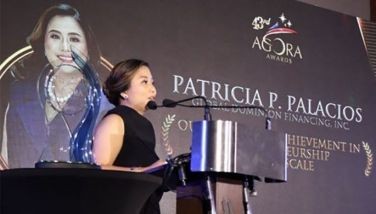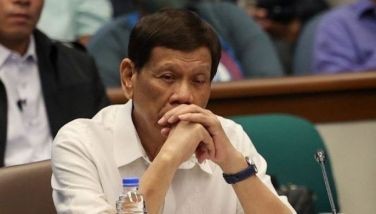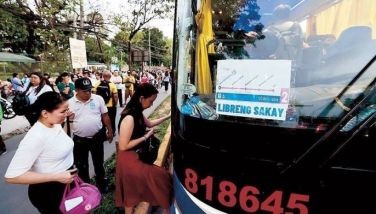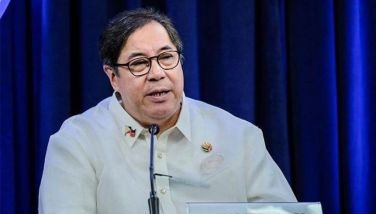People's courts or cold-blooded murder?
On February 2, 2008, Vicente S. Ferrazzini was shot repeatedly by communist assassins when he stopped his car at a red light in downtown Davao City, in the southern Philippines. The 44-year-old businessman was rushed to the hospital, where he died two days later. The New People’s Army (NPA), which has been waging a Maoist insurgency throughout the Philippines for more than four decades, justified Ferrazzini’s murder by saying he had been allowing the military to set up camps on one of his family’s properties.
Targeted killings like this by the NPA are not new. The NPA was founded 43 years ago as the armed wing of the Communist Party of the Philippines, making it one of the longest-running Communist movements in the world. Since its inception, it has carried out such killings as part of what it calls “revolutionary justice.” This “justice” is often meted out after a conviction and sentencing by what the NPA calls its “people’s courts.”
The latest to fall to the NPA’s form of justice was Patrick Wineger, a Filipino businessman of Swiss descent who was shot dead on March 7 in Kidapawan City in Mindanao. The NPA, in a statement a day later, accused Wineger of being a military “asset” and said he had been involved in the fatal shooting of an Italian priest, Father Fausto Tentorio, on October 17 in his garage in the nearby town of Arakan. The NPA claims that Wineger had referred to Father Tentorio as a communist supporter at a public rally several months before his killing.
On April 9, the NPA released what it called an “indictment” of Wineger, as well as of President Benigno Aquino III, military officials, and members of paramilitary forces, for Tentorio’s murder. While the NPA has so far stuck with its pronouncements seeking to justify Wineger’s killing, it decided to apologize for Ferrazzini’s murder after its own investigation determined that the grounds for the death sentence had been insufficient. While the NPA offered to compensate Ferrazzini’s family — the killing proved to be a major setback for the NPA in southern Mindanao — it is unclear whether disciplinary action was taken against those responsible.
Common article 3 of the 1949 Geneva Conventions, which applies to all warring parties in the Philippines, prohibits passing sentences without a judgment by a regularly constituted court, “affording all the judicial guarantees which are recognized as indispensable by civilized peoples.” The 1977 Additional Protocol specifies that the court must be independent and impartial, and the accused shall have the right to be at the trial and present a defense, among other guarantees.
The NPA has sought to give credence to its “justice” by claiming its revolutionary courts follow “legally acceptable principles,” which “are applied and the rules of criminal procedures are undertaken under the prevailing guerilla war conditions.” Its penal code, the NPA said in a letter to Human Rights Watch in October 2011, “prescribes, among other penalties, the imposition of capital punishment for grave crimes which have inflicted huge damage to the masses and the revolution.”
In its statement on the NPA’s 43rd anniversary on March 29, the Communist Party’s central committee urged the NPA to carry on dispensing “justice.” It asserted, as it has in the past, that “the broad masses of the people strongly demand the arrest, trial and punishment of the landlords with blood debts, all the human rights violators, the plunderers, ringleaders of criminal syndicates in drugs, human trafficking and cattle-rustling and operators of enterprises that ruin the environment, agriculture and livelihood of the people.”
The longstanding failings of the Philippines’ justice system, which permits members of security forces and powerful warlords to commit countless abuses with impunity, have helped to give the NPA’s “revolutionary justice” a measure of credibility in lawless rural areas. Thus the NPA claimed, in its letter of apology to the Ferrazzini family, that while the Armed Forces of the Philippines had a “terrible record of fraud and fabrication, deceitfulness and deception,” “self-criticism” was “a hallmark of the principled standpoint, viewpoint and method of the revolutionary movement.”
But in practice the people’s courts are anything but an independent and impartial tribunal. Philip Alston, the former United Nations special rapporteur on extrajudicial executions, reported that the NPA’s court system was “either deeply flawed or simply a sham.” The procedures the NPA claims to follow make a mockery of real justice. Their executions are nothing short of cold blooded murder. Most of those accused of political crimes are tried in absentia without their knowledge. Those in the NPA’s custody — whether captured soldiers or accused spies — are likely to face a trial in which they or an appointed representative are given little real chance to present a defense. And of course the whole process, from beginning to frequently grisly end, is under the NPA’s control.
By pretending that it is operating a real justice system, when in fact it is carrying out bloody vigilante justice, the NPA only adds to the misery of the Filipino people directly affected by the country’s long internal armed conflict. If NPA leaders pride themselves on carrying forth the aspirations of the Filipino masses, they will stop holding sham trials and shooting people down in the streets.
(Elaine Pearson is the deputy Asia director at Human Rights Watch. Follow her on Twitter at @PearsonElaine)
- Latest









